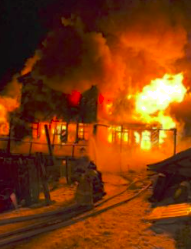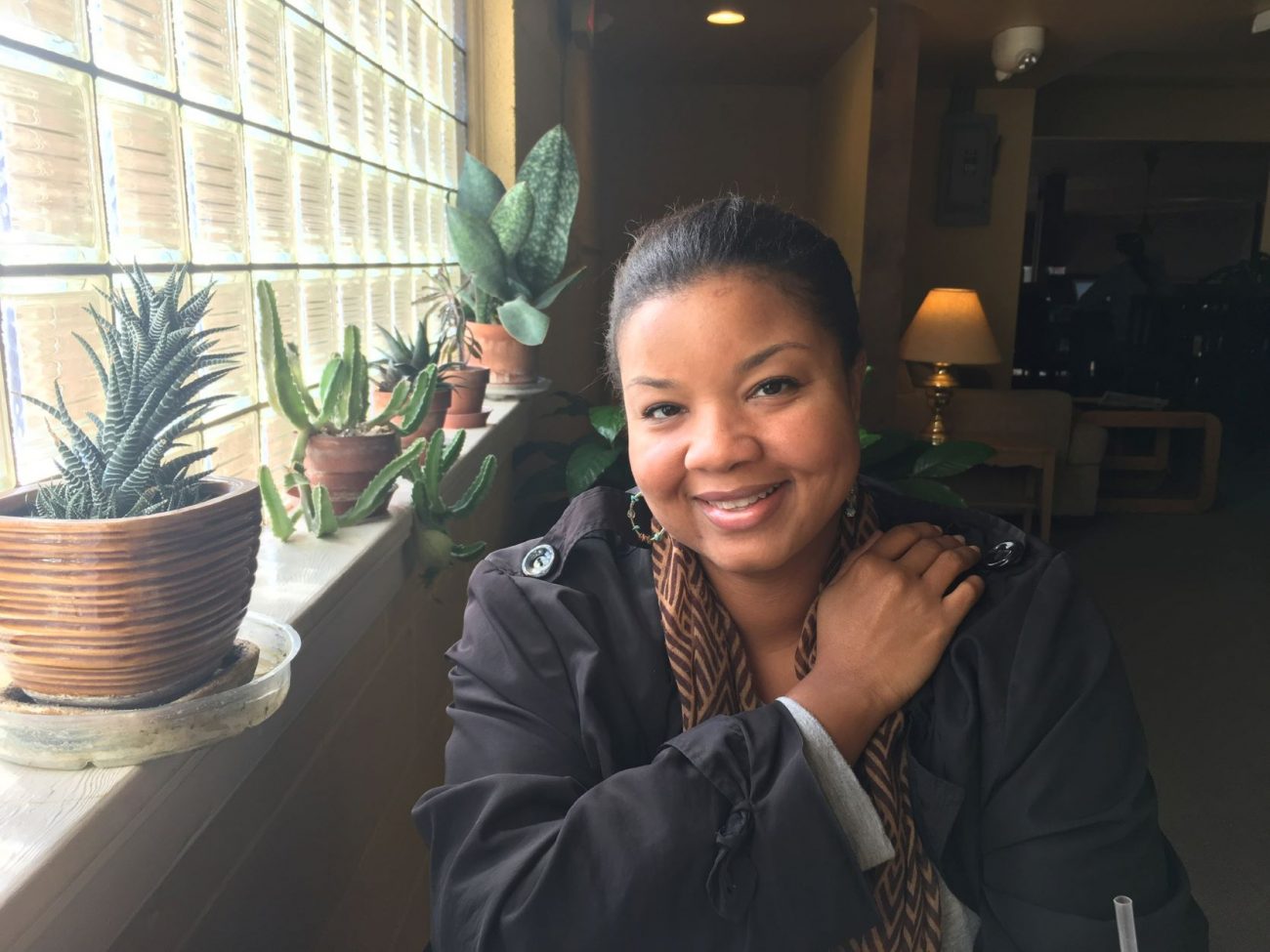Spreading like wildfire: And baby let it burn.

Almost daily there is a story in the news that is so salacious it becomes viral immediately whether it is true or not. This writing is inspired by a conversation I had with my brother last month. We were discussing the notion that although my recounting of many of the stories I write about are true, they are my truth. The truth from my eyes with the knowledge I had about the given situation at that one moment in time. I hadn’t given it a lot of thought that some of my experiences that I remember so vividly could be viewed vastly different by another person who is coming from a completely different place. This got me thinking about perhaps interviewing a few of the participants in some of my future stories and adding their take on the story. It might be entertaining to see how multiple people all tell the same story in a different way. Minimally, It had me thinking about how quickly we can rush to judgment about someone with no more information than the color of their skin, their weight, gender, sexuality, if they have tattoos maybe, and so on. We are a very judgmental society. There are even mobile apps that help us with this; just “Swipe Right.” But with our ability to create a pandemic in a matter of moments on social media, the damage we do to someone’s reputation is not much different from a wild fire. Some small spark can turn into an out of control inferno and as it spreads, everyone seems to enjoy throwing gas on the fire. Despite our “best intentions,” once started a fire may be extinguished but its damage will last forever.
Ok here goes….
As a routine part of my job working as a government contractor and minority business owner, I had the fun job of on-boarding new employees with the help of our director of human resources. Together we would input all the demographics of each new hire into the various applications used to track time management, payroll, health insurance, etc… The process sucked, but thankfully only took thirty minutes for each new hire. The only saving grace was that I was able to catch up with our HR Director whom I considered a good friend. We naturally turned a thirty-minute task into an hour shooting the shit as we worked.
On one of these sessions we were just starting to input a new employee’s information, starting with his name and address, and I paused while typing it into the database. Kristen, my HR director, asked me what was wrong. I told her I think I know this guy, well sort of know this guy. His address and last name was one I would never forget.
It was a very cold December evening about ten years earlier. I was at home in bed with my wife, sound asleep. I lived in a condo in Columbia near the hospital in a small community named Deering Woods. About three o’clock in the morning I was awoken by my fire department pager. It makes an extremely loud audible beeping sound followed by a series of tones that activates the pagers of other stations being called to respond. Lastly, there is a tone that denotes the nature of the call. Rescue or Fire. I would always wake up, but only jumped out of bed for the fire calls as the rescue calls only required the ambulance to respond, which was fully staffed. Besides, at this point I lived in Columbia off Harpers Farm Road, close to the Community College. Logistically, there was no way I would ever be able to make it to the firehouse in time to respond with the ambulance. I would however, meet the ambulance at scenes near Columbia to upgrade their unit to a Paramedic Unit. At that time in Howard County, most of the ambulances only provided Basic Life Support, and a group of Paramedics, like myself, would drive a Suburban Truck loaded with Advanced Life Support equipment, to meet on scene and upgrade should a call be serious enough to require advanced life support. This included cardiac monitoring or defibrillating, starting IV’s, and pushing one of forty different type of drugs, controlling an airway with intubation tubes, chest tubes, or other airway adjuncts. Paramedics are like mini doctors, whereas the EMT-B’s a kin to being a nurse.
On this frigid evening in December, the call was for a house fire in Highland, Maryland. It is a small community just south of Clarksville where I routinely volunteered. It was a good 20-minute drive under normal circumstance. But at three o’clock in the morning, doing 90mph on Rt. 108, I made it to the fire house in just over 10 minutes, grabbed my gear and jumped on the brush truck with another firefighter that was pulling up in his car right about the same time I did. The weather, in addition to being very cold had also started to drizzle freezing rain. I flipped on the red and white overhead flashing lights, and as I started to pull off the firehouse apron, I saw a couple other volunteers pulling up to staff the reserve engine. At the same time, we heard over the radio, the first responding engine call on-scene, “Heavy smoke and fire showing, dropping a line at the top of the hill.” This got our adrenalin pumping. Heavy smoke and fire showing, is a working fire that has been rolling for a while. I stepped up my speed a bit, but as the rain increased so had the roads become ever so slick. Luckily, we knew the area very well, and were pulling up in the brush truck as the first engine began to pull the first line (fire hose) off the side of the fire truck.
Let me paint the picture for you. The first responders that left our firehouse only consisted of five people. The ambulance had two personnel, a driver and a paramedic. The fire engine crew had three personnel; a driver, that now will act as the pump operator for the fire engine, the Captain, he’s in charge of the scene until a battalion chief arrives and takes over, and a fire fighter, who at this point is on his own to pull the line, straighten it out as quickly as he can, because the driver/pump operator is charging that line with 150 psi of water as fast as he can, so we can begin an attack on the rapidly growing fire. The house on fire was at the bottom of a pretty steep hill that was quickly becoming covered with ice. Not only from the freezing rain, but from the water spray from the fire hose couplings connected to the fire truck. Now keep in mind, this is a rural area. There are NO fire hydrants. The first engine laid a line at the top of the hill for the next arriving engine to connect to in an effort to create a supply chain of water. Traditionally, that second engine would connect to the first engine and then drop a large two to three thousand gallon heavy duty canvas folding tank next to the fire truck to draft water as additional arriving units would come and dump their water into that portable tank. Then as adequate personnel arrived on the scene, some would stay and work on fire attack, while others would perform a complex water supply operation. This could take several fire trucks and water tankers traveling to and from a water source, filling up, dropping off, and then repeating.
On this evening, things didn’t go as planned. Actually nothing about this house fire we would later learned was routine. The odds were against us from several factors, many occurring well before we arrived. Let me back up a little and explain how the fire started so you can appreciate what happened when the additional arriving fire trucks began to reach the top of the hill. Around 10:30pm the evening of the fire, the homeowner smelled an odor of smoke in his house. Instead of calling the fire department for assistance, he did some investigating on his own and found an electrical outlet had burned out in his son’s bedroom. “Confident” he had found the problem; he turned off the breaker to that outlet with the intention of dealing with it in the morning, sending everyone back to bed. Well, about an hour later, right about midnight, the smoke detector in his son’s room was alarming. The homeowner quickly woke up and ran into his child’s bedroom where around the wall above the burned outlet was on fire. He quickly grabbed a pot of water from the kitchen and by splashing it on the wall, he once again was “confident” he had extinguished the fire, and with the exception of having his son sleep in his room due to the smell, everyone once again went back to sleep. Fast-forward a few hours. The smoke detectors are going off again. This time when the home owner gets out of bed to see what’s going on, walking barefoot on his carpet, which is now on fire, he grabs his son and wife and evacuates to the neighbor’s house across the street and finally calls the fire department to report his house is on fire and that both he and his son have been injured, burned severely on the feet and legs.
So as the arriving engines began to arrive atop of the hill, ready to dump their water, the Captain’s quick thinking diverted further disaster by telling all arriving units to stage away from the hill and to not drop any hoses or supply lines down the hill until the ambulance treating the owner and son were able to evacuate them from the fire scene. Had every engine began simply driving down the hill and dumping line and water, there would have been no way to get that ambulance out and another one in. And the prospect of sliding a couple ambulance cots down an icy hill to retrieve several injured patients would not be a good sight.
Now, as I and my brush truck partner, Matt, dawned our gear, we grabbed a couple pike polls and headed into the house to first assist with a primary search and then began pulling ceilings to expose where the fire was so the fire attack crews arriving on the scene could get wet stuff on the red stuff. All this is happening without any knowledge that our water supply was soon to be gone because of the Captain’s decision to hold traffic for the ambulance’s egress. So my partner, Matt and I are on the second story of this split-level house in what is the front living room. Flames are rolling up the first story wall licking the top of the ceiling from the stairs to nearly half way across the living room. Matt and I are driving our polls deep into the drywall and ripping sections of drywall down to expose the fire in the ceiling. But with each bit of ceiling we remove we find the fire is extending well over our heads and is most certainly inside the entire ceiling. We call over our radios for an attack line to knock down some of the fire before we expose any more ceiling. But there is not an additional attack line available. They are all on the right side of the house, having entered through the garage; they were slowly advancing through the bedrooms on the lower level.
The fire, now rolling out of where we had opened the ceiling, was covering the entire ceiling above our heads in the living room and starting to work its way down the opposite wall behind us. The parts of the ceiling we had initially pulled had created a bonfire covering the front stairs that we had minutes earlier used to gained entrance into the house. Both Matt and I got down to one knee because the temperatures while standing was so hot, the face shields on our helmets were starting to twist up and melt. We looked at each other and with out saying anything, pointed to the kitchen, using hand gestures, we signaled to each other, let’s look for an exit out the back before the entire ceiling and roof collapses on us because no attack line was in sight or expected at this point. We were on our own.
We abandoned our pike poles by a large bay window at the front of the house and started to crawl toward the kitchen looking for an escape plan. But we didn’t get very far, and I remember this like it was yesterday. There was dog food all over the floor by what used to be the back entrance. There were all sorts of pantry items mixed into the mess of dog food. It was apparent the wall to the back of the house has partially collapsed inward from the uncontrolled fire below the kitchen. The floor was soft and spongy below us indicating imminent floor collapse so we quickly reversed course back into the living room by the bay window where our pike polls laid waiting for us. At this point the room was near flash over. This is the point where everything in the room is so hot that everything combusts all at once: walls, ceilings, flooring and everything in-between. At that point our only option would be to bust the bay window and jump. That had to be a last resort as long as there were other crews inside the house, since breaking that large window would certainly create a chimney effect with a sudden influx of fresh air in an already rocking house fire. Breaking that window would be akin to pouring gasoline on a barn fire.
Matt and I were lying on our stomachs at this point and called on the radio again for an attack line. We we’re beginning to panic but you would not hear that in our voices on the radios. Fire fighters are like airline pilots. We don’t care if we are about to crash and burn, we will do everything we can to be cool on the radio. Everyone knows some rookie that got all excited on the radio and then never heard the end of it. (I was that rookie once.)
There was an eerie quiet at this point. You could hear the crackling of the fire and not much else. We could hear faint sounds of bells ringing from within the house. Our breathing apparatus has a feature that rings a loud bell when your air levels are nearing empty. It’s a warning that you are about to run out of air and have like five minutes left before you are completely out. Like a pilot’s fuel bingo, it’s a call to immediately stop operations and exit. But like I said, nothing had gone right on this fire, and it was about to get worse, because out of nowhere, we saw one of our brother firefighters running, climbing over the bonfire that was covering the front stairs, bust through the front door, and in one fluid motion, while diving into a forward roll, he reached for his face mask and ripped it off his head in order to take a deep breath of fresh air. His bell never rang, instead, he ran out of air while still attacking the fire. He was a rookie and probably consumed his air faster than most, but that wasn’t his problem. All the water being sprayed on the ceiling had been running down his back, and despite the intense heat where Matt and I were, the basement was exposed to the frigid air and had formed an ice capsule over his metal bell, freezing it solid, preventing it from ringing as his tank neared empty. With no air in his tank, his only recourse was a mad dash out the front door leaving his crew behind.
Matt and I could see this was a cluster-fuck and knew we wouldn’t be far behind his departure from this hell scape. We sat still next to the window for what seemed like an eternity, but I’m sure it wasn’t more than a few minutes, before we heard a loud horn from the fire truck parked in front of the house blasting three long intonations. This is the universal distress and evacuation signal. It’s not used often. But when it is used it means the building is about to collapse and you better get the fuck out before you are buried and cremated.
Ok, this was our signal to go, but we knew we had to be the last ones out since breaking the window would trigger the end of any integrity the structure was holding onto. We watched firefighters run from the house like rats from a sinking vessel. And then still waiting another few seconds after no one else was coming out. The evacuation horn began to blare again, and without hesitation we used our pike polls to bust out the bay window, then used them like a poll vault to jump from the split-level dwelling. You could literally feel the rush of cool air being sucked into the house as we jumped out. I remember lying on the front lawn, pulling off my mask to catch my breath, watching the house completely become just one large ball of fire, and then within minutes, it was just a pile of glowing embers on top of what was once a cinder block foundation.
I later learned we had simply run out of water and there was no way given all the forces working against us, that we were going to save any part of this structure that had caught fire at 10pm that evening, slowly burning in the walls, ceiling, and attic. No attempt by the homeowner had done anything to stop this fire from spreading. Like the titanic, its fate was sealed when he failed to call the fire department initially. We have sophisticated equipment that can see fire inside walls. We would have scanned and opened up his son’s bedroom wall to expose and extinguish any fire with a small water can, a 2.5-gallon stainless steel pressurized water fire extinguisher.
Well, we spent the next several hours cleaning up our equipment as the house continued to smolder. We initially started to re-apply water to the pile of coals, but after a while, we just used what steady supply of water we had to spray the neighbors’ houses to keep their siding from melting or catching fire. It’s not an ideal situation to leave a fire burning, but given the weather conditions and the fact it was a total loss, powers that be made the decision to let it burn. It was so cold; we had to use chain saws to cut the fire hose that was frozen solid to the street in order to salvage our expensive 4″ couplings so it could eventually be used on a new hose. Otherwise they would have been run over by the various fire equipment leaving the scene of what was now an Olympic downhill bobsled course. It was well past 10am before relief crews came to take over the clean up process. I drove our brush truck back to the firehouse. It had only been used to get us there, and so after a quick wash inside the warm engine bay, I was ready to go home, shower, and hug my wife.
This was an ass kicker as far as house fires are concerned. We did everything right. Protected life before property, and ensured no neighboring structures were damaged. No additional injuries occurred besides the homeowner and his son, and that could have been pure luck, because from the time we busted the bay window and escaped, the entire house was gone within minutes. Despite all that, by dinner time that same day, the news media was interviewing neighbors whom were claiming the fire department didn’t do everything they could to save this house that had been burning since 10pm the night before. Their baseless claim resulted out of the appearance that we didn’t have an adequate water supply nor improvised to their liking. Several neighbors were questioning why the first fire truck that arrived on the scene didn’t simply run a hose around the back of the house where there was an above ground pool, and use that water. Now, that sounded like a great idea but for one factor: Physics! You can’t suck water from a fire hose, it will simply collapse. You have to draft it with a special hardened plastic sleeve, and even then, you can only overcome so much atmospheric pressure while drafting uphill. Forget the fact that above ground pools are frozen over in the winter, and it would have required repositioning the fire engine so close to the house on fire to siphon the water, that the fire would have destroyed the $750,000 fire truck that the community would depend on after this single incident was over. There were just so many factors that lead to the poor outcome; none were preventable by the fire department. But that didn’t stop the calls to the media for an investigation by the neighbors.
Now, here is the thing. All fires are investigated by the fire marshal. All fires have a post mortem by the fire chiefs. Finding out what happened in all cases is very important. Even when the findings are negligence on the homeowner, it is the fire departments responsibility to find better ways to inform the public about fire safety. What is counter productive is the distraction from the sirens song the media and neighbors were quick to stir. We eventually held a town hall meeting with the homeowners association later that same week, but the feelings that it was the fire department’s fault had hardened and nothing the Chief was going to say or any evidence he was going to present would have an effect. In the end, they just couldn’t understand why we let it smolder and burn once the entire house had collapsed. And in hindsight, perhaps, a single hose line trickling water on the pile may have given a different impression of our efforts, but it surely wouldn’t have altered the outcome positively in any fashion. The real kick in the dick was that several of us fire fighters risked our lives, and not like we usually do, there were moments in this fire where I and others feared someone would either die or get severely burned. That fact was lost completely on the neighborhood. There was also no mention of the heroic actions of the Paramedics, nor the Captain’s decisions, which enabled rapid evacuation of the burn victims. The damage was done, and there was nothing the fire department could do to change the minds of the neighbors. It was a public relations nightmare that lasted a very long time. It was a huge shit sandwich and we all had to take a bite.
After Kristen and I finished entering the rest of his information into the various databases, I produced him an I.D. badge and gathered a key to his new office. He was to be a director of some really technical project. All I knew, if we hired him, he had to be brilliant at what he does. Besides that, I only knew him by his address as he was not at any of the town hall meetings after his house burned down since he and his son were in the hospital recovering from their injuries in the days following the fire.
I walked down the hall to his new office to give him his badge and key. He thanked me graciously and introduced himself, “I’m Frank” he said.
“Yeah, we’ve met, well, sort of. I’ve been in your house,” I said uncomfortably. He looked at me with he most confused and awkward smile.
“Oh yeah? How’s that?” He asked with a little skepticism. And since we had actually never met, I’m sure he was probably thinking I was some kind of screwball that was making his first day at the new job pretty fucking weird.
I quickly got to the point and told him that I was one of the firefighters that tried to save his house that night years ago. I asked him sincerely how he and his son had recovered from their injuries. I shared with him my experiences of both that night and the days that followed. I told him his house, to that point in my firefighting career was the most I had ever feared death, and the days that followed were equally difficult. I wasn’t trying to be confrontational, but I knew, as a director at our company we would be peers and would be working close together on a number of projects. I needed to clear the air. I needed to make sure my feelings about that incident didn’t cloud my judgment or attitude towards him, as his success would be my success.
I hadn’t really thought through how a conversation about something, which I’m certain was a very painful event in his and his family’s life, would have gone in the short time it took me to walk down the hall to his office. Or the fact that maybe, his first day on the job was poor timing on my part. And I’d be lying if I didn’t admit I had a chip on my shoulder about that incident and the response we received from his neighborhood. But to my surprise, Frank listened attentively to my account of the incident, the reasons we did what we did, and how everyone truly risked everything to try and save his house. He didn’t immediately reply, so I wasn’t sure how I had come across. But after a brief moment, he looked at me sincerely and said, “Yeah, that was something. A lot of time passing has given me a different view of that day. I’m really appreciative for you and all the people that came not only that night, but afterwards to help us recover from that fire.” And just like that, any ill feelings I had about that night some years ago faded away. Unfortunately there are neighbors that still hold onto the notion that the fire department was responsible for the loss of his house. I would later get to know Frank very well; he is a quiet, yet very friendly and extremely brilliant engineer whom I consider a friend.
I turned 49 while writing this story and getting old mostly sucks, but there are some advantages. I had a conversation with another dear friend last week about the rigorous pace of work, and how there is pressure to answer supervisor’s inquiries quickly. I shared with her that, as I have gotten older, I’ve recognized that it’s ok to say, “I don’t know”, and there are many times, listening and saying nothing is the best response. Not passing judgment or getting involved in many situations is a better option. I just know that every time in my career when I responded to a situation with emotion, or before I had all the information, it would have always been better to say nothing than the wrong thing. In other words, God gave you two ears and one mouth for a reason.







